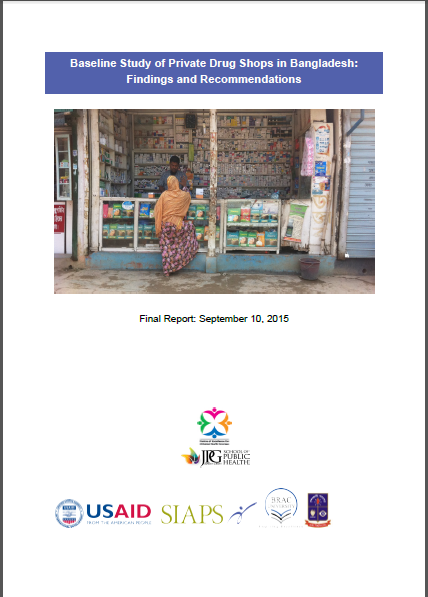
Retail drug shops are the preferred first point of contact for a majority of the population in developing countries including Bangladesh. Currently in Bangladesh, 1,03,451 licensed retail drug shops and approximately an equal number of unlicensed retail drug shops are involved in selling drugs “over-the-counter.” Most of the salespeople and dispensers at those retail drug shops do not have training in dispensing drugs or in offering diagnoses and treatment, which they frequently do.
Because those drug shop salespeople have no other channel of information beyond the formal sectors open to them, they fall easy prey to the aggressive marketing strategies of the pharmaceutical companies. Irrational use of drugs such as overprescribing, multidrug prescribing, using unnecessarily expensive drugs, dispensing drugs without a prescription, and overusing antibiotics and injections have been the most common problems found with those retailers for a long time.
Given the importance of the informal sector, including retail drug shops in Bangladesh, improved regulation of this sector offers an important opportunity to improve community health. Experiences in other parts of world have demonstrated that private-sector drug seller initiatives that are based on an accreditation and regulation model are feasible, improve access to medicines, and can be scaled up.
This study aims to fill in the knowledge gaps about those unregulated drug shops in the private sector and about management of them through the informed design of an accredited drug shop model in Bangladesh. The inclusion of the tuberculosis-related assessment in this study is a result of the priority for a TB program that will increase the number of cases that are detected and referred early to a TB treatment and diagnosis center for proper management.


